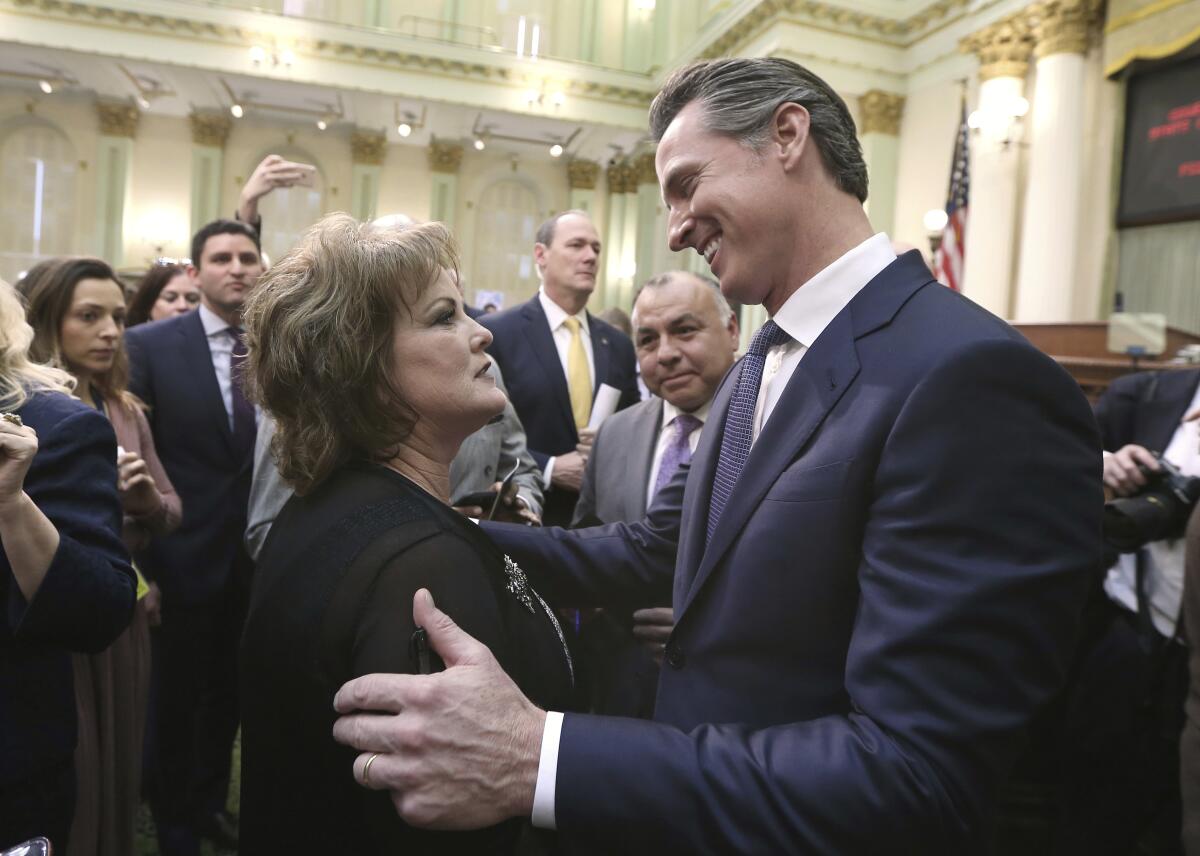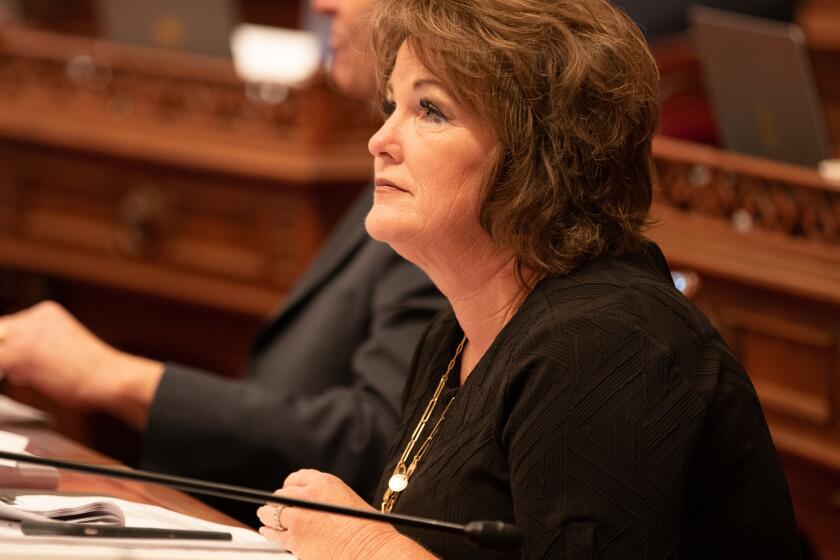California lawmakers send Gov. Newsom child sex trafficking bill that divided Democrats

- Share via
The California Legislature approved legislation Wednesday to increase penalties for child sex traffickers, a seemingly simple bill that turned into one of the most divisive issues this year in the state Capitol.
Senate Bill 14 would classify sex trafficking of minors as a “serious” felony under California’s penal code, which triggers the state’s “three strikes” law that allows prosecutors to pursue life sentences in some cases.
A key panel passed the bill two days after killing it, reviving what had been a bipartisan effort to crack down on people who repeatedly traffic children.
The proposal is on its way to Gov. Gavin Newsom after earning unanimous approval in the Assembly and Senate.
The legislation earlier this year caused a rift within the Democratic caucus over how best to solve the growing issue of trafficking in California without penalizing victims.
Proponents of SB 14 have argued that state law is too lenient on child sex traffickers and that prosecutors need stronger tools to send people to prison for longer sentences. While a sex trafficking conviction can carry up to a 12-year prison sentence — or 15 years to life if the crime involves factors such as force, fear, coercion or violence — some anti-trafficking activists say those sentences are rare and that traffickers are often let out early only to repeat the crime.
A bill to strengthen penalties for child sex traffickers in California passes a major hurdle after progressive Democrats win amendment to shield victims from prosecution.
“SB 14 will serve to protect future generations by stopping people from engaging in this horrific crime,” said state Sen. Shannon Grove, the Bakersfield Republican who wrote the bill. “SB 14 will send a direct message to those committing this horrific crime of selling our children for sex in the state of California that we will no longer stand by and tolerate this and you will serve a lengthy prison sentence.”
Despite SB 14 sailing through the Senate at the start of the year, disagreement among Assembly Democrats in July nearly tanked the measure, when the high-profile Assembly Public Safety Committee rejected it over concerns that it could ensnare trafficking survivors in the justice system.
The decision caused public outrage and led to death threats against the committee’s chair, Assemblymember Reggie Jones-Sawyer (D-Los Angeles), who ultimately reversed course, called foranother hearing and quickly passed the bill. The uproar prompted both Newsom and Assembly Speaker Robert Rivas (D-Hollister) to weigh in and encourage a resolution. Democrats who initially opposed the bill apologized, while dozens added their names to the measure as co-authors and issued public statements in support of SB 14.
“Good to see. Thank you, @RobertRivas_CA for your leadership,” Newsom wrote on social media after SB 14 passed the Assembly.
“I think it’s long overdue. I think that it is time that we stand with the children,” said state Sen. Susan Rubio (D-Baldwin Park). “This is a message to all victims that we’re here, we hear you, we see you and we want to help you.”
Minor amendments to the bill adopted earlier this month address concerns that it could hurt survivors with an amendment to “exempt human trafficking victims from the serious felony provision,” a win for more progressive Democrats and prison reform advocates.
“When proposed policies punish more individuals than intended, the collateral damage to specific communities can cause a domino effect of irreparable injustice,” Jones-Sawyer said during an Assembly debate before he voted for SB 14.
A list of anti-trafficking organizations supported the stiffer penalties, along with religious groups, law enforcement and district attorneys. Opponents included advocates who’ve pushed for changes to the criminal justice system, including the American Civil Liberties Union, public defenders and the California Coalition for Women Prisoners.
Senate Bill 14’s passage is a rare victory for Republicans in a state Legislature dominated by Democrats who have in recent years passed laws that roll back tough-on-crime policies of the 1980s and 90s that ushered in a wave of mass incarceration. But it also reveals vulnerable cracks in the criminal justice reform movement at a time when concerns over crime are rising and Democrats face criticism in how they’re addressing it.
Assemblymember Isaac Bryan (D-Los Angeles) said the larger debate over SB 14 was more about expanding for the first time in many years the state’s three-strikes law, which prison reform groups blame for filling prisons with Black and brown Californians.
“This conversation over SB 14 wasn’t whether child trafficking is serious,” Bryan said. “Of course it’s serious.”
Newsom has until Oct. 14 to sign or veto SB 14 and hundreds of other bills.
More to Read
Sign up for Essential California
The most important California stories and recommendations in your inbox every morning.
You may occasionally receive promotional content from the Los Angeles Times.













